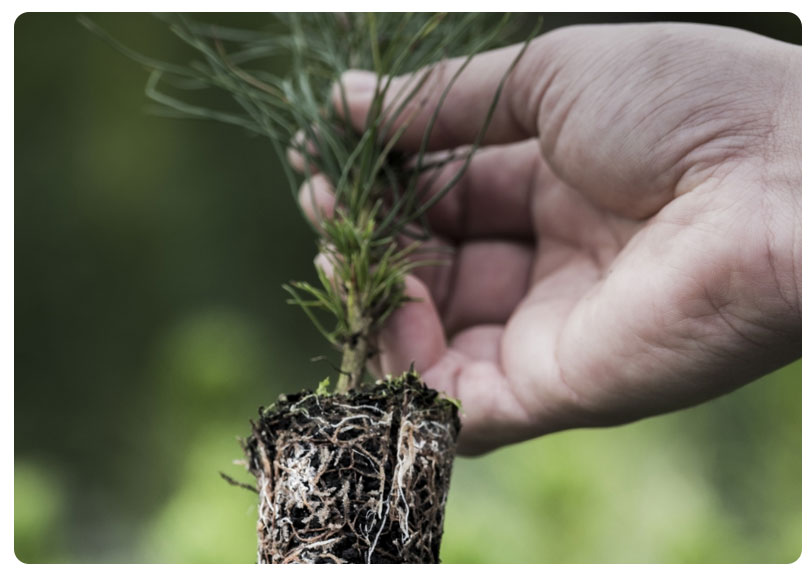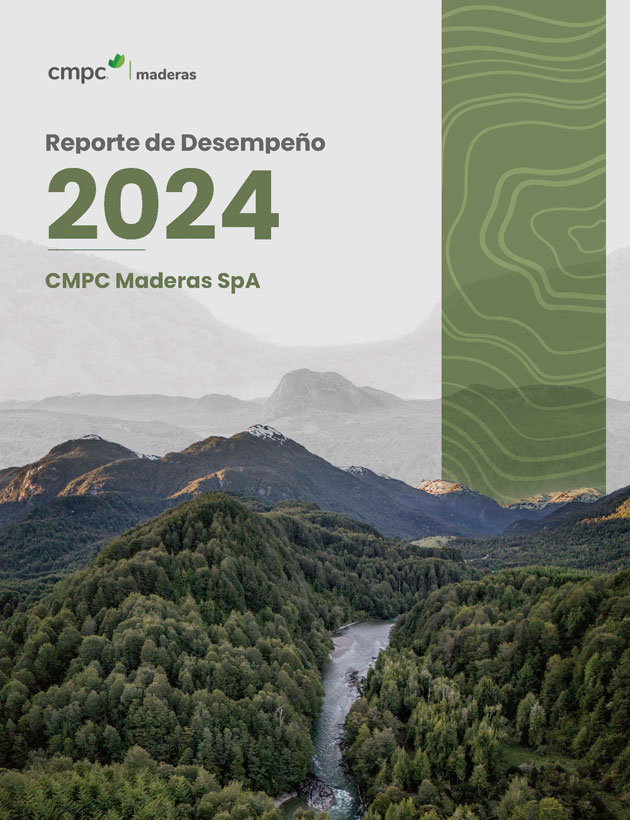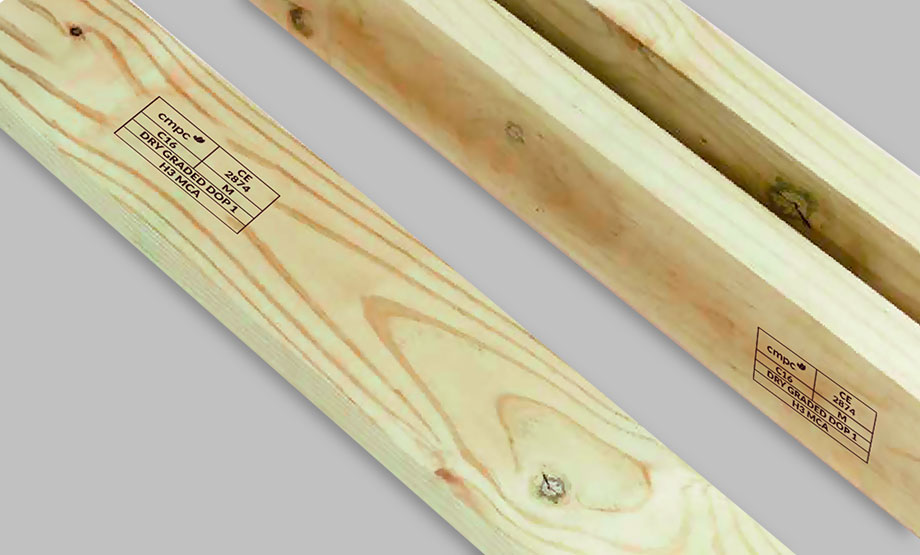In 2015, the countries of the world adopted the 2030 Agenda for Sustainable Development and its 17 development goals, which bring together the efforts of countries to achieve a sustainable world.
The new objectives are part of an ambitious, bold, and sustainable development agenda that focuses on the three interconnected elements of sustainable development: economic growth, social inclusion, and environmental protection. To achieve these goals, everyone has to do their part: governments, the private sector, and civil society.
CMPC has decided to align its strategy and sustainability objectives with the Sustainable Development Goals (SDGs) promoted by the United Nations Organization. As a consequence, CMPC will work to determine the priority areas to advance in terms of sustainability, including concrete goals for the year 2030.
In 2015, the countries of the world adopted the 2030 Agenda for Sustainable Development and its 17 development goals, which bring together the efforts of countries to achieve a sustainable world.
The new objectives are part of an ambitious, bold, and sustainable development agenda that focuses on the three interconnected elements of sustainable development: economic growth, social inclusion, and environmental protection. To achieve these goals, everyone has to do their part: governments, the private sector, and civil society.
CMPC has decided to align its strategy and sustainability objectives with the Sustainable Development Goals (SDGs) promoted by the United Nations Organization. As a consequence, CMPC will work to determine the priority areas to advance in terms of sustainability, including concrete goals for the year 2030.
2030 Agenda for Sustainable Development

This reinforces CMPC's commitment to sustainable development
Featured projects of the CMPC Green Bond
- Pinus Radiata Plantation and Replanting Processes in Chile.
- Development of Eucalyptus hybrids as an alternative to Eucalyptus Globulus, for better yield.
- Native Forest Restoration Program (FSC™ and Certfor Commitments) of Forestal Mininco.
- In 2018, CMPC bestowed the second Green Bond through the Peruvian subsidiary Protisa for nearly USD $30 million.
- The bond was placed on the Lima Stock Exchange in Peru; it is the first of its kind to be issued in the country, and the amount will be used to refinance sustainable projects at the Protisa de Cañete and Santa Anita plants.


Reforestation
One of CMPC’s permanent commitments is reforestation. This implies the prevention, replanting, and recovery of different raw material species.
In the Carlos Douglas nursery, about 800,000 native and ornamental plants of different species are produced annually. To achieve this number, there are several high-quality technological processes and mechanisms, such as greenhouses with automatic environmental control, mechanized equipment for planting, and the use of machinery from the Netherlands that is unique in Chile and Latin America for plant transplantation.

There are two specific areas of high conservation value intended to protect two endangered species: the Ruil (Nothofagus Alessandrii) and the Adesmia (Adesmia Longipes). Both species are nursed and then replanted in these areas, thus increasing their populations and preventing them from disappearing due to climate change or human actions.
Additionally, in June 2018, CMPC signed an agreement with the Chilean Forestry Institute (INFOR) for the genetic protection of the Araucaria species. This species linked to the Mapuche culture is in a vulnerable state and is under protection. That is why this agreement aims to create a seed storage bank to ensure the genetic variability of the species in the future, which will be developed in CMPC’s nursery. Also, the company will deliver about 30,000 Araucaria seedlings to INFOR within a year and a half, which are to be planted in specific areas where they can grow in favorable conditions.
There are two specific areas of high conservation value intended to protect two endangered species: the Ruil (Nothofagus Alessandrii) and the Adesmia (Adesmia Longipes). Both species are nursed and then replanted in these areas, thus increasing their populations and preventing them from disappearing due to climate change or human actions.
Additionally, in June 2018, CMPC signed an agreement with the Chilean Forestry Institute (INFOR) for the genetic protection of the Araucaria species. This species linked to the Mapuche culture is in a vulnerable state and is under protection. That is why this agreement aims to create a seed storage bank to ensure the genetic variability of the species in the future, which will be developed in CMPC’s nursery. Also, the company will deliver about 30,000 Araucaria seedlings to INFOR within a year and a half, which are to be planted in specific areas where they can grow in favorable conditions.
A forest certification system that seeks to provide consumers of forest products with accurate and verifiable information on the content of the certified material.
FSC™ is a global nonprofit organization dedicated to promoting responsible forest management worldwide. It enables companies and consumers to make informed choices about the forest products they buy and create positive changes by harnessing the strength of market dynamics.
Having the FSC™ Certification guarantees that CMPC has one of the highest social and environmental standards in the market and offers certified products supporting the responsible management of the forests worldwide.
The CERTFOR Chain of Custody certification – PEFC is a certification standard through which the certified material is tracked from the moment it leaves the forest until it reaches the final consumer.
PEFC is the non-governmental and non-profit organization that recognizes and approves forest certification systems on a global level, with the aim of ensuring that forests are managed responsibly and that their multitude of functions are protected for present and future generations.
Products that have PEFC seals and that reach the final consumer guarantee that all companies involved in their preparation are certified, ensuring the traceability of sustainable raw materials transferred from one industry to another.
The Chain of Custody Certification is intended for manufacturers, processors, and merchants of FSC certified forest products. This type of certification verifies that the products sold with the FSC™ label contain FSC™ certified materials from controlled sources.
Through this mechanism, CMPC guarantees to the consumer that the wood used in the manufacturing of their products comes from an FSC™ certified forest or plantation. To meet this objective, FSC™ certified wood is individualized throughout all of the Company’s operational and support processes (Outsourced Services), keeping it separated both physically and through documentary evidence.
The FSC™ chain of custody provides information on the path of the products, starting with the forest and ending with the consumer. This includes all stages of the transformation, from manufacturing to distribution, in which the passage to the next link in the supply chain implies a change of property.
Forest Stewardship council™ label and the Rainforest Alliance Certified seal on all CMPC products ensures consumers that the wood used comes from forests that have met rigorous standards that seek to contribute to maintaining the biodiversity, productivity, and ecological processes of the forest.
- Self declaration FSC-POL-01-004
- FSC Chain of Custody CMPC Maderas (FSC-C110313)
- *Ask about our FSC certified products
Product group listing FSC™ CMPC Maderas
Es una norma de certificación a través de la cual se hace seguimiento del material certificado desde que sale del bosque hasta que llega al consumidor final como un producto procesado para su uso.
The Chain of Custody Certification is the mechanism through which a company guarantees to the consumer that the wood used in the manufacturing of its products comes from an FSC® certified forest or plantation.
Chain of custody compliance statement between cmpc maderas spa and cmpc usa, inc.
This document indicates that both involved parties have committed to implement and maintain the chain of custody and the requirements of the standards, as well as compliance with the values of the fsc™ and certfor/pefc certifications.
CMP implements the “sgen” energy management system, which is a series of actions that allow for the efficient administration of energy use, optimizing consumption by our plants, and generating significant savings for the company. this labor implies standardizing and clearly identifying the management of each plant with its different kinds of fuels and energy sources.
mplementing and maintaining energy management systems in our installations of production is an initiative that seeks to improve the energy performance of their processes, through systematizing energy analysis, establishing indicators, and monitoring and tracking them.
CMPC adheres to the occupational health and safety assessment series, ohsas 18001, which establishes the requirements for implementing a culture of health and safety at work. this allows for the recognition of risks that are faced in each operation, and above all, by the people who work there, thus protecting all of our collaborators and contractors.
At the same time, it enables the company to systematically and structurally manage policies, strategies, and associated improvement objectives, with the goal of preventing and controlling any risk that may occur at the workplace, ensuring that they are minimized by continual improvement processes.
Declaration of fundamental principles at work
to know more, check the link
Our Impact in Numbers: Introducing the CMPC Maderas 2024 Performance Report

At CMPC Maderas, we remain firmly committed to transparency and continuous improvement. Our newly released 2024 Performance Report outlines key achievements across sustainability, including environmental, social, and governance performance, as well as the challenges and opportunities that have defined our year.
This report is a reflection of the values that guide our 2030 Strategy and our ongoing efforts to build a more sustainable, efficient, and customer-focused pulp industry.









